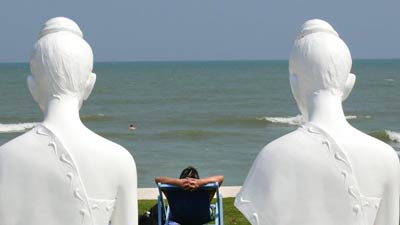The Meaning of Freedom

Freedom: the ability to do as we choose; freedom from coercion and externally imposed constraints.
There are many different types of freedom. Firstly, there is political freedom: the freedom to live without constraints from the government. There is also individual freedom: the ability to choose as we see fit, without constraints from others. Finally, there is spiritual freedom; this necessitates being free from the limitations and ignorance of our own human mind.
There are clearly different ways to use our freedom. For a drug addict, freedom involves the ability to take as many drugs as his habit forces him. However, the more drugs he takes, the more his concept of freedom is narrowed; the addiction means his life revolves around the necessity of finding and taking drugs. In one sense he has the freedom to take drugs; on the other hand by becoming an addict he loses the freedom to choose anything else. It is here that we start to question whether individual freedom is the highest kind of freedom.
The human mind is a creature of habit. When we make decisions, quite often we make them because that is what we are used to doing. We hear people say "I know I shouldn't be doing this" or "I wish I could give this up." However, if we are reluctantly drawn to do an action out of compulsion, can that be freedom? -
It is not just in the consumption of addictive drugs that human freedom proves illusory; we can also examine how the traits of the mind create limitations in everyday thought patterns. For example, the mind creates habitual responses to certain situations. If we get criticised, we feel miserable; in the face of injustice, we get angry. It is most difficult to control these emotions; they seem an inevitable part of our nature. We wish to be free, but no matter how often these experiences occur, our reaction is the same. Furthermore, these in built responses of the mind unmistakably lead to suffering and depression.
We wish to be free but at the same time we are slave to the instinctive responses of the mind. What kind of freedom is it when we are at the mercy of events in the outer world? Is it really freedom when one word of criticism, can plunge us into the depths of despair?
The highest experience of freedom can only occur when we can be detached from events in the outer world. Freedom means we need to have our own emotions and responses under our control.
"Spiritual freedom is our liberation from the mire of self-created bondage." [1]
Freedom means that no matter what may happen to us, we can maintain a sense of inner peace, poise and detachment. This inner peace is essential for a real sense of freedom. It is only when we have boundless inner peace that we are not a victim to our own negative thoughts and habitual responses.
How much of our choices are conditioned by the society in which we grow up? If we are honest, we have to admit that if we were born in a different situation, a different place, our life choices would be very different. This is because our choices are a reflection of what society teaches and expects. We may feel it is our freedom to live as we do. But, in reality, this freedom is heavily influenced by sociology and our limited perspective.
However, if we can gain an access to our soul, we develop an insight into our life's purpose. This soul's purpose is detached from social expectations. This is real freedom, because we have the ability to choose according to the aspirations of our soul. We are not just choosing what is expected of us. To be really free, we have to be able to detach ourselves from social conditioning and the ignorance of the mind. This can occur only if we dive deep within. This is the difference between inner and outer freedom
We may have a freedom to choose anything on an outer plane; but, this freedom does not give us abiding satisfaction; why? This freedom is only a freedom to choose from a limited egoistic perspective. Real freedom is only possible when we become one with the universal consciousness. This consciousness is not constrained by the limitations of the mind. It is all expanding, infinite bliss and real freedom. It is because of this inner bliss and ecstasy that spiritual aspirants are not satisfied by the so-called freedoms of the world.
An aspiring seeker does not just want a limited outer freedom; he wishes to escape the cycle of bondage that inevitably creates suffering. In fact, the spiritual seeker, may look upon the outer freedom as a false kind of freedom; a freedom which keeps from discovering our true self.
"What is false freedom? False freedom is our constant and deliberate acceptance of ignorance and our conscious existence in ignorance. What is real freedom? Real freedom is our conscious awareness of our inner divinity, and our constant inseparable oneness with the Inner Pilot" [2]
It is for this reason that the Buddha gave up his kingdom to become a wandering ascetic. In the material world he had all he could wish for, but Siddharta knew that even with this outer freedom he was tied to the inevitable suffering, death and pain of life. The Buddha wanted freedom, he wanted to taste the bliss of nirvana and escape the endless cycle of death and rebirth. With great determination and aspiration, the Buddha transcended his sense of ego; he entered in the perfect freedom of nirvana. In this consciousness, the Buddha was free from the temptations and forces of the world; he regained his Buddha hood and understood the real nature of life, freedom and his Self.
[1] Freedom by Sri Chinmoy
[2] Freedom: From the Tears of Nation hearts by Sri Chinmoy
Picture credit: by Kedar Misani, Sri Chinmoy Centre Galleries
Labels: spirituality


